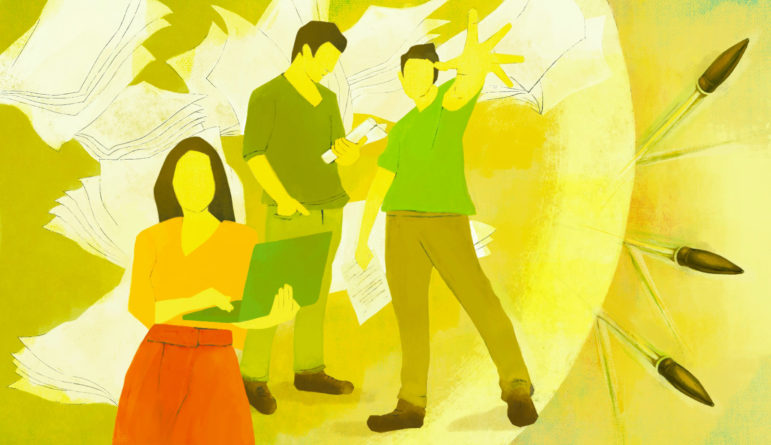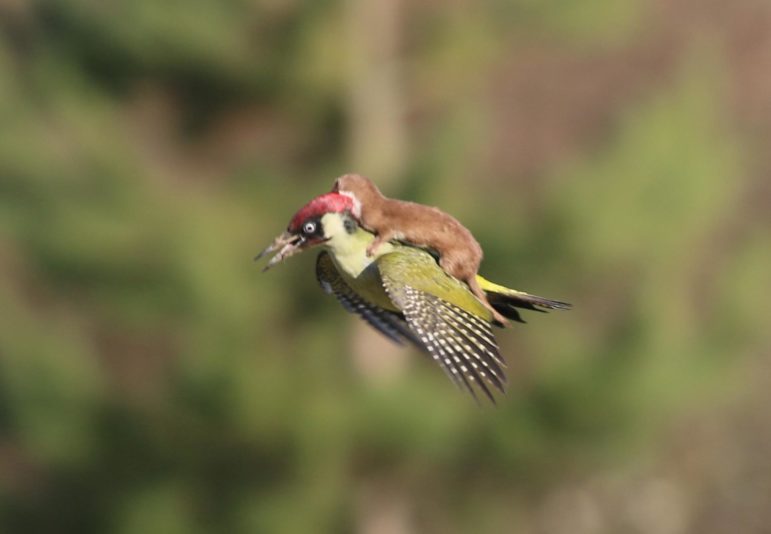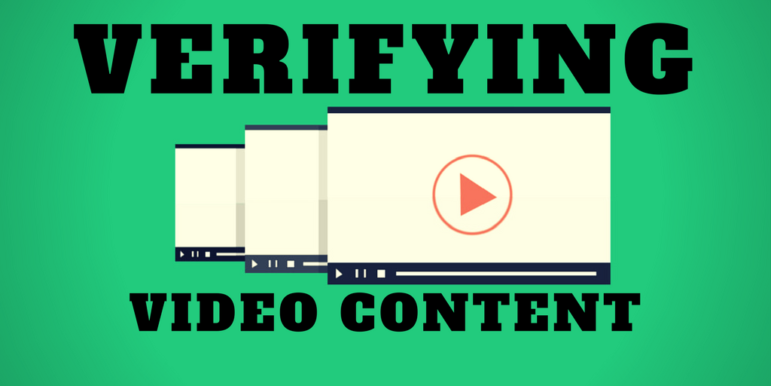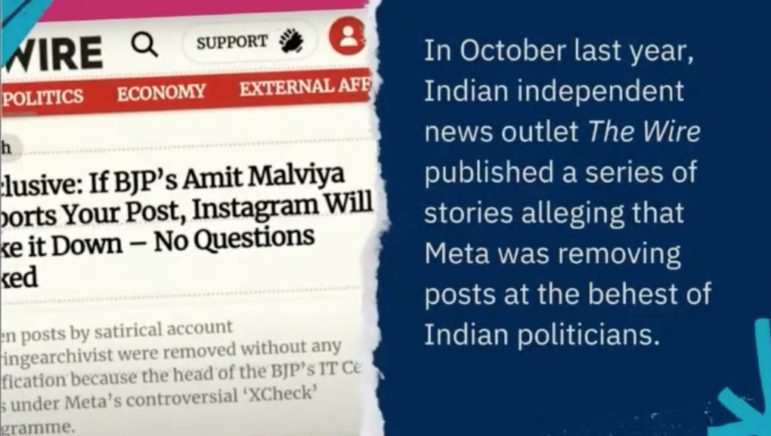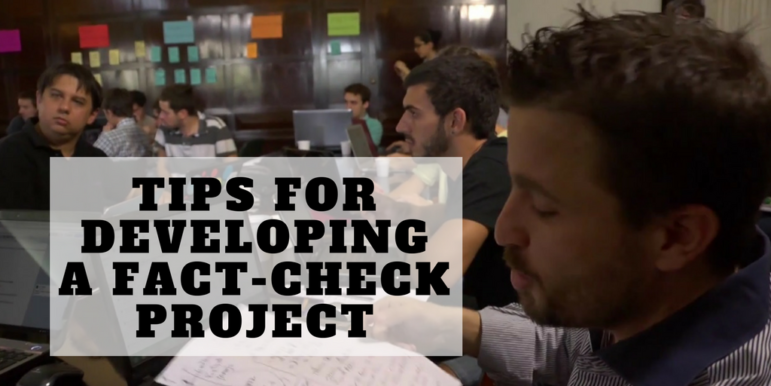

How To Start Up a Fact-Checking Group
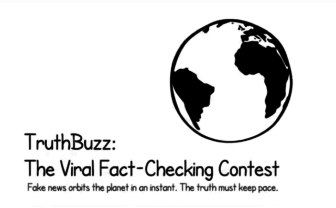 Just a few days before the viral fact checking contest TruthBuzz closed its deadline, IJNet Spanish organized a live chat with experts from Argentina, Colombia and Uruguay which focused on developing fact-checking projects.
Just a few days before the viral fact checking contest TruthBuzz closed its deadline, IJNet Spanish organized a live chat with experts from Argentina, Colombia and Uruguay which focused on developing fact-checking projects.
Laura Zommer, executive director of the Argentinian site Chequeado; Fabio Posada, editor of ColombiaCheck; and Román Sugo, founder of Uruguay’s UYCheck, all took part in the event. Here are some of the top takeaways:
The Essentials
Zommer said that the most important aspect of running a fact-checking site is the transparency required right from the start. This includes the verification method, the limitations of the person who fact-checks (“you can’t always reach the categorical conclusion that people expect with the available data”) and the financing of the site and its staff.
She pointed out that it is equally important to determine the right tone in interacting with the target audience, and that it’s vital to remember that these projects are not intended “for leaders to love us.”
Posada explained that it is necessary to be clear about the “pact” the project will establish with its audience, pointing to “the method of fact-checking and the policy of corrections.”
Before launching ColombiaCheck, Posada’s team produced content for two months, as if the site were already online.
“It was a learning period based on trial and error,” he said.
Methodology
The process begins by choosing wisely — and strategically — about what to check.
For Zommer, it’s not enough to be “autonomous and non-partisan,” but also to appear to be, which means it’s vital to check leaders from all points of the political spectrum at the right time. “The closer their statement to the fact-check, the more impact it will have,” she says.
Chequeado has a very specific methodology, which they teach in a course they hold twice a year.
The eight-step process includes consulting the person to be checked (after having selected the statement to be analyzed), reviewing both the official source and other alternatives (such as experts, universities, consultants, NGOs), putting the data into context (“this is the most relevant!”) and then confirming, relativizing and grading (if the organization decides to work with grades, something not all fact-checking groups use).
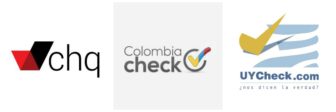 Since ColombiaCheck and UYCheck were both projects inspired by Chequeado, their methodologies are quite similar.
Since ColombiaCheck and UYCheck were both projects inspired by Chequeado, their methodologies are quite similar.
“In our case, we talk to the person we are checking, we go to public sources and non-governmental sources and we make technical enquiries to experts about the subject we’re working on,” Sugo explained. They devote quite some time to this process — their “guarantee that the research will be well done.”
Some tasks involve extra efforts, such as conducting a live fact-check.
“This requires the team of checkers to have some (background on the subject) because there’s always a chance of being wrong,” Zommer said. At Chequeado, they prepare for these live event with volunteers experts which are called specifically for each case.
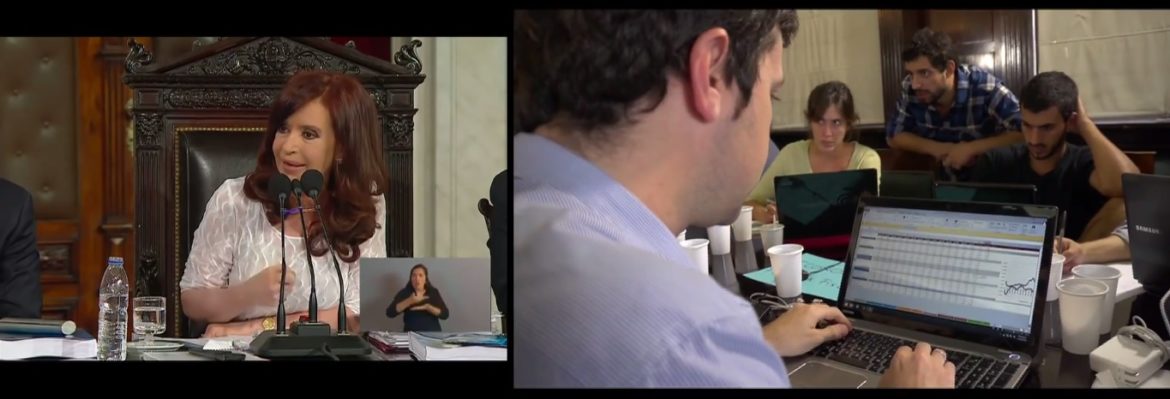
On Air: Screenshot of live fact-check with former Argentinian President Cristina Fernández de Kirchner. You can access a sample video of a live fact-check of former Argentinian President Cristina Fernández de Kirchner here.
For UYCheck‘s Sugo, the success of a live check will depend largely on the work done in preparation in order to “predict what the person is going to say and to know where to find the information you need.”
The Staff
In addition to becoming a regional model, Chequeado has been able to increase its staff component.
“We started out as three and now we’re 16: a team of eight full-time and eight part-time staff,” Zommer said, noting that not everyone is engaged in writing. The editorial staff consists of six journalists, an editorial innovation director and Zommer, the executive director. The rest of the team works in education, innovation or institutional development, including fundraising.
ColombiaCheck and UYCheck work with fewer staff.
“Unlike many fact-checking projects, on our team we only have one person who has training as a journalist. The rest come mostly from the social sciences,” Sugo said of his seven-person team.
The ColombiaCheck team is even smaller: two journalists, an intern and an editor, as well as a designer and a community manager from Consejo de Redacción, who works part-time.
The Business
“There is no fact-checking organization in the world that makes money with this but there are many like Chequeado, which has developed a sustainability model that has will allow us to do our work for several years,” said Zommer, who also mentioned AfricaCheck, Fullfact and Politifact.
For Posada, financing is “the million-dollar question.” ColombiaCheck continues to depend on international support, although its sponsor organization, Consejo de Redacción, has allocated some resources for the second year of the project. In addition, they have held training workshops which bring in some extra income. But it is far from supporting itself. At UYCheck the situation is quite similar.
“What we do is develop other projects that allow us to obtain financing and support for UYCheck,” Sugo said. They also sell specific fact-checks to some media groups. One advantage is that their use of volunteer experts helps to keep costs low.
A Force Against Fake News?
Chequeado added the special campaign #FalsoEnLasRedes to address the fake news problem.
“Our work can contribute to having more alert and critical citizens,” Zommer said. But she doesn’t believe that fact-checking sites can prevent what happened in the United States, where the 2016 election campaign was tainted by fake news. “People do not decide their vote based on evidence but on other factors.”
Posada sees the situation in his country in a similar way, adding that he doesn’t think it’s appropriate to have fact-checking sites take responsibility for ending the trend of fake news. “We are one more element of an ecosystem of truth that must be strengthened.”
This post first appeared on the IJNet website and is reproduced here with permission.
 Santiago Sánchez, an Uruguayan journalist, is IJNet’s Spanish editor and community manager. He works for the newspaper la diaria, focusing on political and trade union issues. Sánchez has an honors degree from ORT University and is currently pursuing a degree in political science.
Santiago Sánchez, an Uruguayan journalist, is IJNet’s Spanish editor and community manager. He works for the newspaper la diaria, focusing on political and trade union issues. Sánchez has an honors degree from ORT University and is currently pursuing a degree in political science.


